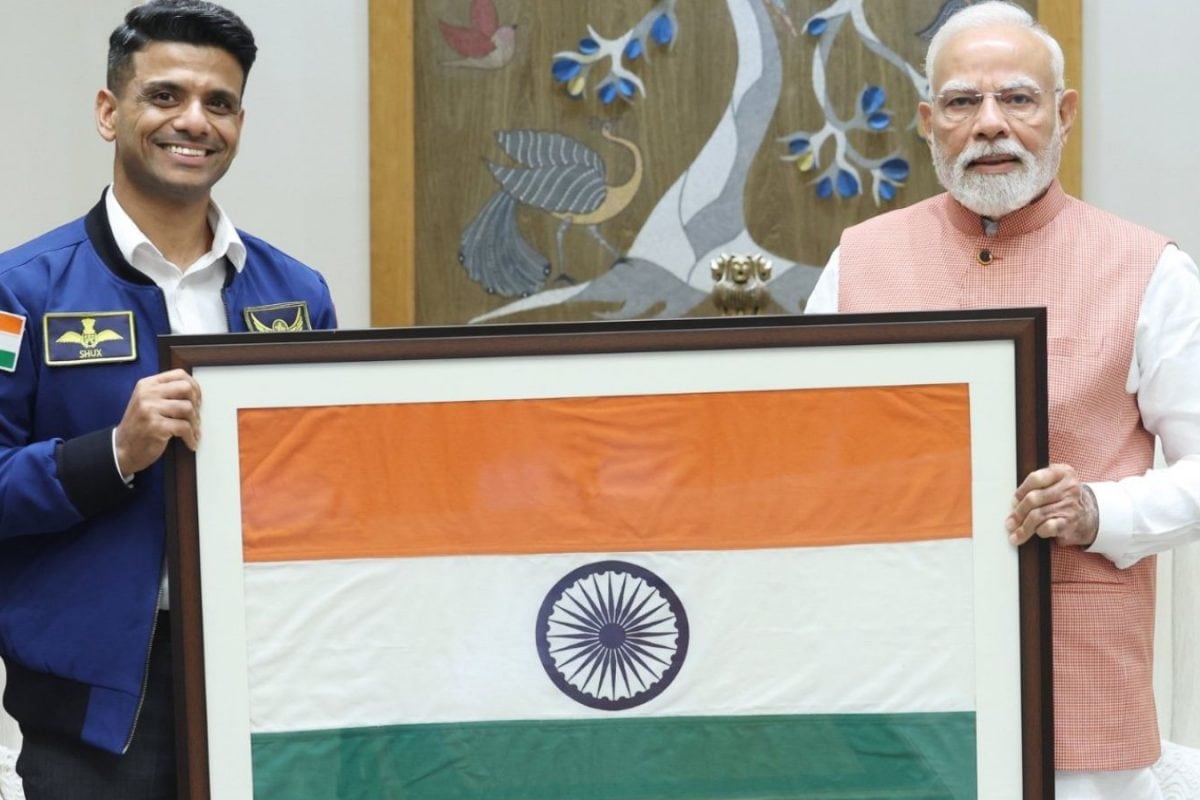

Recently returned from a landmark mission to the International Space Station (ISS), IAF Group Captain Shubhanshu Shukla met with Prime Minister Narendra Modi, where discussions centered on India's ambitious Gaganyaan mission and the global interest it has garnered. Shukla, the first Indian astronaut to visit the ISS, shared his experiences in space, providing valuable insights for the ongoing Gaganyaan program.
During the meeting, Shukla conveyed to PM Modi the significant international attention and enthusiasm surrounding the Gaganyaan mission. He noted that scientists worldwide are eager to collaborate and contribute to the project, highlighting the mission's global appeal and potential for international partnerships.
PM Modi acknowledged the importance of Shukla's experiences during his 18-day mission to the ISS, emphasizing how these insights would be invaluable to India's space ambitions, particularly the Gaganyaan mission. The Prime Minister also inquired about the "homework" Shukla completed, jokingly referring to the astronaut's documentation of his space mission.
The Gaganyaan project aims to demonstrate India's human spaceflight capability by sending a crew of three members to a 400 km orbit for a three-day mission, eventually bringing them back safely to Earth. This mission requires the development of critical technologies, including a human-rated launch vehicle, a life support system to provide an Earth-like environment in space, and crew emergency escape provisions.
International collaboration is a key aspect of the Gaganyaan mission. The Indian Space Research Organisation (ISRO) is working with various international space agencies, including Russia and France. Russia is assisting with astronaut selection, while France is contributing its expertise in space medicine. The European Space Agency (ESA) will provide ground tracking support to ensure continuous data flow and communication with the Orbital Module. Australia has also formalized its support for the Gaganyaan missions, with an agreement to collaborate on crew and crew module recovery.
PM Modi has consistently emphasized India's commitment to self-reliance in the space sector. During his Independence Day address, he highlighted the impact of space sector reforms and reaffirmed India's goal of launching the Gaganyaan mission and establishing its own space station in the future. He also mentioned Shukla's mission as an inspiration for a billion dreams and a major step in advancing India's space ambitions.
Parliament also honored Group Captain Shukla, with Union Minister of State for Science and Technology Jitendra Singh recognizing his achievement as a new chapter in India's space journey. Lawmakers expressed that the mission not only strengthened homegrown science but also inspired young Indians to pursue careers in space and technology.
The success of the Gaganyaan mission will mark a significant milestone for India's space program, paving the way for future sustained human spaceflight activities, such as rendezvous and docking, space station building, and collaborative manned missions to the Moon, Mars, and near-Earth asteroids. The mission's global buzz, as highlighted by Shubhanshu Shukla, underscores its importance on the international stage and the potential for further collaboration in advancing space exploration.